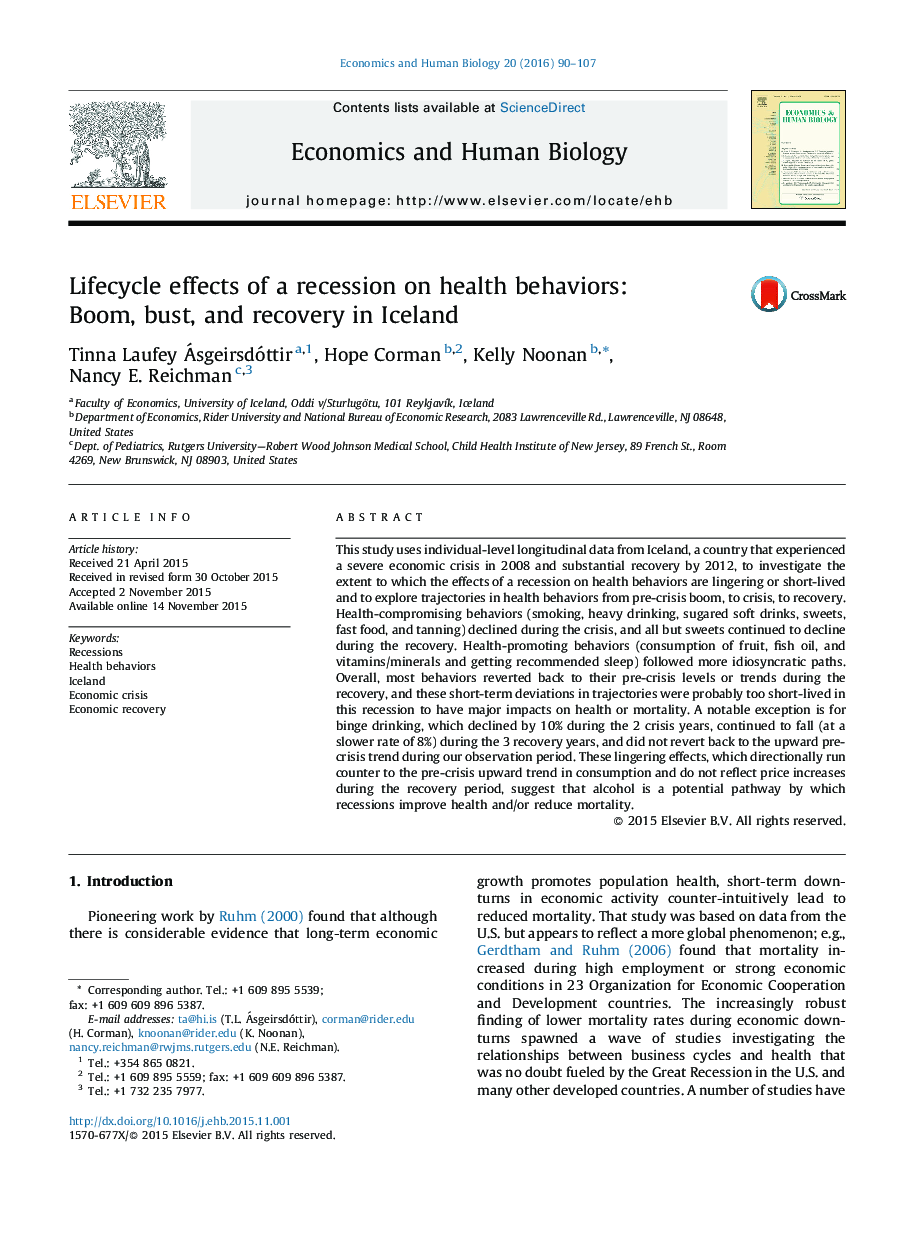| کد مقاله | کد نشریه | سال انتشار | مقاله انگلیسی | نسخه تمام متن |
|---|---|---|---|---|
| 5056907 | 1476559 | 2016 | 18 صفحه PDF | دانلود رایگان |
- Were effects of 2008 Iceland recession on health behaviors lingering or short-lived?.
- Most health behaviors reverted back to pre-crisis levels or trends during recovery.
- Alcohol had lingering effects, so may be a pathway between recessions and health.
This study uses individual-level longitudinal data from Iceland, a country that experienced a severe economic crisis in 2008 and substantial recovery by 2012, to investigate the extent to which the effects of a recession on health behaviors are lingering or short-lived and to explore trajectories in health behaviors from pre-crisis boom, to crisis, to recovery. Health-compromising behaviors (smoking, heavy drinking, sugared soft drinks, sweets, fast food, and tanning) declined during the crisis, and all but sweets continued to decline during the recovery. Health-promoting behaviors (consumption of fruit, fish oil, and vitamins/minerals and getting recommended sleep) followed more idiosyncratic paths. Overall, most behaviors reverted back to their pre-crisis levels or trends during the recovery, and these short-term deviations in trajectories were probably too short-lived in this recession to have major impacts on health or mortality. A notable exception is for binge drinking, which declined by 10% during the 2 crisis years, continued to fall (at a slower rate of 8%) during the 3 recovery years, and did not revert back to the upward pre-crisis trend during our observation period. These lingering effects, which directionally run counter to the pre-crisis upward trend in consumption and do not reflect price increases during the recovery period, suggest that alcohol is a potential pathway by which recessions improve health and/or reduce mortality.
Journal: Economics & Human Biology - Volume 20, March 2016, Pages 90-107
